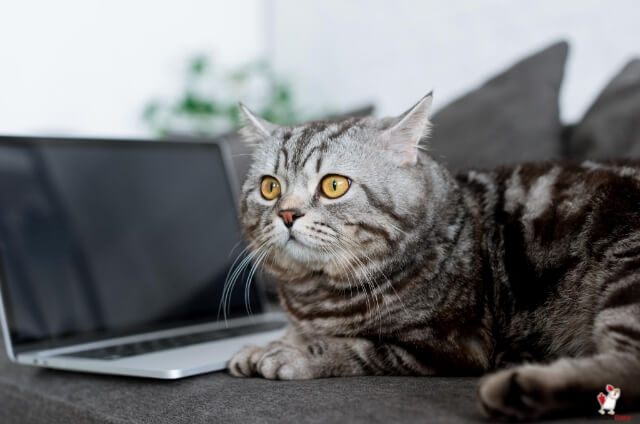If you’ve never experienced your pet cat getting mad at you, then it’s either you’re very lucky or it’s only a matter of time before this reality hits you. Cats are known to be cute and loving, but these creatures can also be very cunning and sinister at times. You’ve probably seen a picture or meme of a cat wearing a grumpy look: well, chances are that the cat was mad at its owner or the person taking the picture. It is well known that cats do get mad, but some people argue that they are incapable of holding a grudge since they have short memories. Cat owners who have experienced this, however, will argue otherwise.
Do Cats Hold Grudges?

Yes, cats can hold grudges. The notion that cats have short memories mostly applies to kittens. Older cats, on the other hand, are a different story altogether. It is not uncommon to find these mature felines giving their owners a disdainful look, or refusing to be petted. These are clear signs of grudges a cat may express. These grudges can come as a result of some unpleasant event the cat may have had. Depending on your cat, the length of time it’ll hold a grudge can span anywhere from a few hours to several days.
How Long Can A Pet Cat Hold A Grudge?
Studies have shown that mature cats have memories that can endure up to 16 hours. With this number, you can make a solid guess of how long a pet cat can hold a grudge. Basically, a cat can hold a grudge for a few hours. But some owners have reported cases of their cats displaying feelings/signs of resentment for days, usually after suffering a bad experience. In cases like these, the cat’s individual nature may be to blame, or perhaps the severity of the event that led to the grudge in the first place.
The truth is that cats are forgiving animals, so if your cat’s grudge should last for more than a few hours, then it’s either you really provoked it, or it’s not a grudge anymore. Cats have memories very similar to humans, and this is another thing that makes them pretty good at hating. A cat has two types of memory – long-term memory, and working memory.
1. Long-term Memory: This type of memory is responsible for recalling information and experiences from the past. Recent investigations have shown that a cat’s memory can last anywhere from 4 hours up to 2 days. This broad range indicates that different elements can influence a cat’s long-term memory. Furthermore, their long-term memory also varies based on breed, age, and environment.
2. Working Memory: working memory can be said to be the active memory. It allows us to carry out tasks without losing track of what we’re doing at the moment. Working memory is the small amount of information that’s usually held in the mind to use in executing cognitive tasks. A cat’s working memory is not very impressive, and this has been proven extensively by several studies. A cat can easily forget things within a few minutes or less (sometimes less than a minute).
With this, it’s safe to conclude that a cat’s long-term memory is responsible for its ability to hold grudges for a long time.
What Can Make My Cat Hold A Grudge Against Me?
It’s quite impossible to fully understand how a cat thinks. But one thing is for sure – these guys remember traumatic events very well. So if you annoy your cat in some way, it may resent you. The level of closeness/bond you have with your pet cat will hugely influence how long or how frequently your cat will get mad at you. If you and your cat share a strong bond, it will forgive you easily, unless, of course, you do that same thing/offense repeatedly.
Also, bear in mind that older cats are more prone to rage than younger ones. This is most likely due to the age-related problems they conceal. That being said, here are some things that can really annoy your cat, and make them seem to hate you:
1. Improper handling or handling without permission
2. Touching sensitive areas like the belly, genital area, or paw pads
3. Causing harm or bodily discomfort (for example stepping on its tail)
4. Petting or cuddling too much, till the cat gets fed up
5. Entering a territory uninvited
6. Causing unnecessary commotion
7. Waking up your sleeping cat (doing this every time can really piss off your cat)
8. Keeping the litter box dirty
9. Leaving the cat alone for extended periods (this can be catastrophic if you and your cat share a strong bond)
10. Refusing to feed or play with the cat-like you normally do.
11. Inviting another cat/animal home, and showing it more attention
These are things that can annoy a cat. However, different cats will respond differently (some may get enraged, some won’t), depending on how much they love their owners and the cat’s own individual nature.
Signs Your Cat Is Holding A Grudge Against You
Now that you know a cat can hold a grudge, it’s important that you know just how these felines express their contempt. There are some attitudes your pet will display, that’ll let you know it isn’t happy with you. Here are some of such signs:
1. Your cat hides or leaves whenever you walk into the room.
2. Your cat totally refuses cuddling or petting
3. Cat refuses to eat any food you offer
4. Your cat walks around with a puffed-out tail and an arched back.
5. Hissing or growling around you
6. It gives you that unique, disdainful look
7. It makes a mess everywhere
8. It claws at you or pulls at your cloth
These are mostly behavioral changes your cat will show when they are enraged at you. But bear in mind, however, that some of these behaviors don’t always mean that your cat is mad at you. In fact, certain behaviors such as cats making a mess can be caused by several factors. Here’s a simple guide for you.
Cat Behavioral Changes And Possible Causes
| Behavioral Changes/Problems | Possible Causes |
| Cat refuses to eat | Stomach upset, sickness, stress, grudge |
| Cat refuses to use the litter box | Infection, anxiety, grudge |
| Sleeping disorders/change in sleeping pattern | Illness, anxiety, pain, stress |
| Cat makes a mess everywhere | Rage, hunger, discomfort, fear or anxiety, grudge |
| Cat becomes withdrawn or aggressive | Rage, jealousy, stress, anxiety, grudge |
| Cat makes more unusual noise (growling, hissing, etc) | Pain, discomfort, anxiety, infection, communication with other cats |
How Do I Appease My Cat?
Sometimes it’s best to leave your cat alone for a while. If you try to force the cat to accept you immediately, it may claw at you, and you may end up getting enraged yourself. If you must take steps to reconciliation, be smart and subtle about it.
Get your cat’s favorite toy or food and place it some distance away from your cat (don’t approach your cat yet), at a spot where it can see the food/toy and see you too. After a while, if they take the bait, try to approach cautiously and see how it’ll respond. Depending on your cat, and the strength of the bond you both share, your cat should come around sooner or later.
However, try not to ignore your pet cat for too long in the process of giving it some space. These felines love attention, so ignoring them may worsen the whole situation.

I’m Christopher Benjamin, a dedicated Animal Nutritionist at Ethos Veterinary Health with a Bachelor of Science in Animal Science from Michigan State University. My lifelong passion for animals led me to establish AnimalsData.Com. Here, I share expert advice, educational resources, and inspiring stories to empower fellow pet lovers worldwide. Join our community as we celebrate the beauty and diversity of our beloved animal companions!
